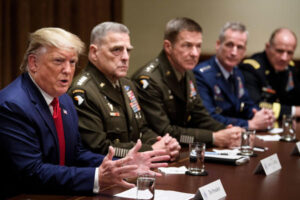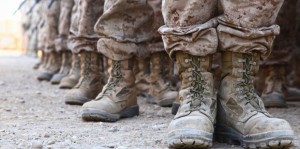Pete Hegseth’s continual references recently to the agency he leads as the “Department of War” made me want to puke all over myself.
His audience that day happened to be all the flag officers summoned to Quantico, Va., for some sort of pep talk from the Secretary of Defense and his boss, Donald Trump. I was struck by frozen reaction among the flag officers to the “war” reference that Hegseth kept repeating. They didn’t cheer. They didn’t even clap politely.
Why? I believe I know why. It is because every one of the men and women who heard the fraudulent defense boss have actually seen war. Whether they flew combat missions in jet aircraft, commanded ships at sea in the midst of armed conflict, carried weapons onto battlefields or served in command positions during wartime … they all have seen war up close.
I recall a statement from Army Gen. Norman Schwarzkopf, who said that the last thing a combatant ever wants is to go to war against an enemy. The hero of Desert Storm did so during the Vietnam War, as did his boss during Desert Storm, Joint Chiefs Chairman Army Gen. Colin Powell.
Donald Trump plucked Hegseth off a “Fox and Friends Sunday” set to command the most lethal fighting force in human history. Then Trump said he wanted to change the Defense Department’s name to the War Department. It is a ridiculously provocative term, that Hegseth swallowed.
What’s more, he managed to offend many of the flag officers who heard him reference an activity about which he knows nothing.
Sickening.


